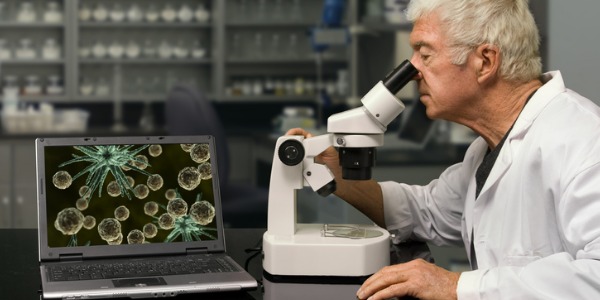What is an Immunologist?
An immunologist is a specialized medical doctor trained in managing problems related to the immune system, such as allergies and autoimmune diseases. Doctors in other fields of medicine refer their patients to immunologists if they suspect their patient’s medical condition has to do with the immune system.
A smaller number of immunologists are strictly researchers with advanced degrees (either a master's or a doctorate) in immunology. Immunologists who conduct research, do so to increase our understanding of how the immune system works. They also conduct research to find out what happens when the immune system fails to work properly, as well as to develop better ways of diagnosing and providing treatment for many immunological conditions.
What does an Immunologist do?

Immunology is defined as the study of an organism's defence/immune system, in both health and disease. There are many harmful organisms such as viruses, bacteria and parasites constantly trying to gain access into the body, and if successful, can lead to a number of serious diseases. Immunologists work in many different areas of biomedical research, as well as in healthcare, agriculture and environmental monitoring.
Immunologists from developed nations are working together with countries in the developing world to help prevent and treat major problems associated with global health/disease. These include vaccine preventable diseases, emerging infectious diseases, HIV/AIDS, malaria, sexually transmitted diseases, tuberculosis, cancer and other neglected infectious diseases.
Am immunologist's job and their role often depends on the type of organization they work for:
-
Immunologists employed by health services tend to be either qualified doctors specializing in the study of diseases (pathology) or the study of allergies. They can also be scientists with expertise in a clinical laboratory.
-
Immunologists employed in the pharmaceutical and bio-technical industry help develop new medical products and therapies. They generally work with other scientists to produce new products or improve existing ones.
-
Immunologists employed by universities work in virtually every life science department or division conducting research to increase our understanding of the immune system. They can also work as lecturers, teaching students about Immunology while still conducting their own research.
-
Immunologists employed within the veterinary sciences, as veterinary immunologists, research better ways of improving animal healthcare by preventing disease, and by providing treatment for those animals suffering from infections and other immunological conditions.
Many diseases are caused when the immune system behaves incorrectly. Research immunologists try to understand how and why the immune system malfunctions and causes disease. Such diseases can be broadly classified into the following three categories:
-
Immunodeficiency: occurs when parts of the immune system fail to respond adequately to a harmful foreign substance or organism.
-
Autoimmunity: occurs when the immune system attacks the very tissue it is meant to protect; due to failure of the immune system to recognize its own tissues.
-
Hypersensitivity: occurs when the immune system responds inappropriately (sometimes too intensely) to harmless compounds.
What is the workplace of an Immunologist like?
Immunologists in the medical field are responsible for diagnosing and treating human patients with immunological disorders. They spend most of their time either in the laboratory conducting research to develop new therapies or diagnostic techniques, or in clinics discussing patient treatment strategies. They work in hospitals, medical research facilities, or in their own private practice.
Research immunologists employed by universities work in life science departments or divisions conducting research. They can also work as lecturers, teaching students about Immunology while still conducting their own research.
Immunologists are also known as:
Allergist
Research Immunologist
Allergy Physician
Allergy and Immunology Specialist
Allergist/Immunologist